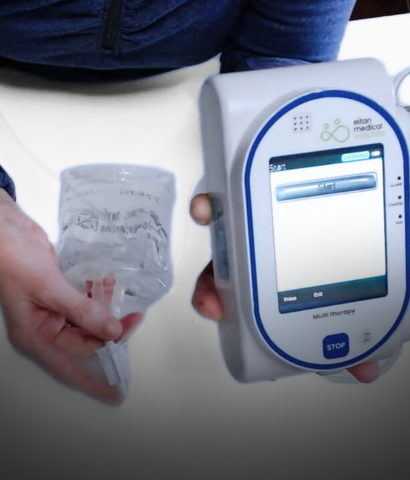
Inotropic therapy uses special medications, such as milrinone or dobutamine, that help your heart pump more effectively. These medications strengthen the heart’s contractions and improve blood flow to the rest of your body.
Inotropic therapy is often prescribed for patients with advanced heart failure or other heart conditions when symptoms like fatigue, swelling, or shortness of breath become harder to manage with oral medications alone.
Receiving inotropic therapy at home allows you to stay out of the hospital and maintain your daily routines, all while getting close, careful support from your healthcare team. Our pharmacy prepares your medication, delivers your supplies, and works with your doctor and home health nurses to monitor your progress and adjust therapy as needed to keep you safe.
Key aspects of home inotropic therapy:
- Medications: Commonly used medications include dobutamine and milrinone, administered through a continuous or intermittent IV infusion.
- Patient Selection: Patients with advanced heart failure, who are stable enough to manage the therapy at home, and who have adequate support systems are typically considered for home infusion.
- Home Infusion Process: Patients and caregivers receive thorough training on medication management, including pump operation, bag changes, and recognizing potential issues.
- Monitoring: Regular monitoring by nurses, including weekly or as needed visits, is essential to assess the patient’s condition, manage potential complications, and ensure the therapy is effective.
- Benefits: Studies have shown that home inotropic therapy can lead to improved quality of life, reduced shortness of breath, fewer hospital stays, and lower healthcare costs, according to Option Care Health.
- Potential Risks: As with any IV therapy, there is a risk of complications such as catheter-related infections or thrombosis, which require careful monitoring and management.
- Palliative Care: Inotropic therapy can be integrated with palliative care services to provide pain management and support for patients with advanced heart failure.
- Interdisciplinary Collaboration: A multidisciplinary team, including physicians, nurses, and pharmacists, works together to develop and implement a comprehensive care plan.
In summary, home inotropic infusion offers a viable option for managing advanced heart failure, improving patient outcomes and quality of life when administered safely and with proper support.

